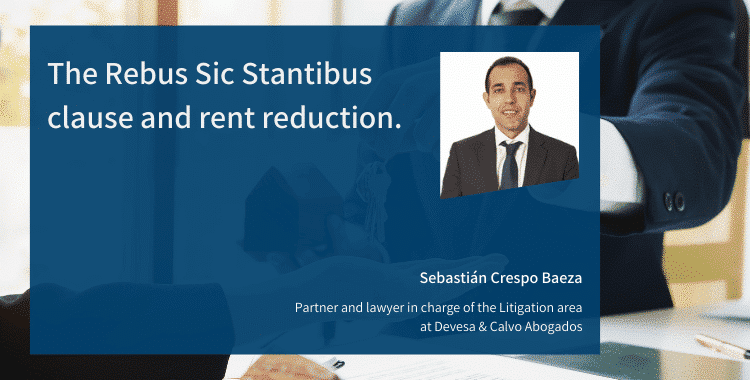
The Rebus Sic Stantibus clause and rent reduction.
The crisis due to Covid-19 has generated a very important economic problem derived from the drop in turnover, clientele loss, capacity limitations, commercial establishments opening and closure hours’ limitation.
Many of the establishments are not owned by the activity holder, they are rented with different contract’s term duration and with an established rent in a period of time that the current pandemic situation was unimaginable.
Without prejudice to the measures adopted by Royal Decree 15/2020, it is worth asking what happens if the requirements for the moratorium are not met (for example, if the landlord is not a large tenant, or if the drop in turnover does not reach 75%), or if after taking advantage of the four-month moratorium on rent payment, the situation remains the same from the lack of turnover, clientele and activity’s point of view.
In these cases, the so-called “rebus sic stantibus” clause can be applied, which implies an obligations’ modification initially assumed by the parties. In other words, an alteration of the “Pacta sunt servanda” principle, which means that contracts are binding and must be fulfilled on their own terms.
This doctrine does not apply automatically, and the actual Covid-19 impact on the contractual relationship under analysis must be assessed.
The Supreme Court has indicated that only contracts that meet the requirements of “alteration of circumstances between the moment of contract’s perfection and the consummation moment, exorbitant disproportion between the parties’ performances, which must have been caused by an unforeseeable risk” can be subject to rebalancing by application of the “rebus sic stantibus” clause.
In the absence of agreement between the lessor and the lessee and due to the insufficiency manifest of the legal measures, it will be up to the Courts to assess on a case-by-case basis whether it is appropriate to temporarily adapt the rent of business rental contracts to the new circumstances.
Partner and lawyer in charge of the Litigation area at Devesa y Calvo Abogados
